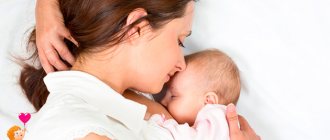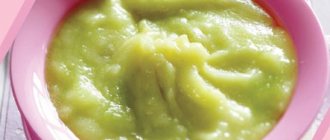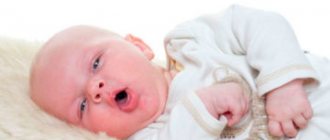Young parents should know how not to infect their infant with a cold if the mother is sick. To protect your baby, you don’t need to distance yourself from him, much less deprive him of natural feeding. You will have to follow simple rules. It is necessary to discontinue guardianship in case of serious illnesses, often requiring hospitalization.
Mom breastfeeds baby
It happens that during lactation a woman gets sick. Some try to isolate themselves from the baby, fearing that he too will suffer. However, pediatricians recommend continuing to breastfeed even if a woman has a fever. It’s another matter if the mother has to take medications that are not compatible with guards. Although now there are even antibiotics allowed during lactation. The main thing is to mention when visiting a doctor that the woman is breastfeeding and does not yet intend to give it up. If this is possible, the doctor will recommend safe medications.
Mother-baby bond during lactation
Not all breastfeeding women know whether the baby can catch a cold from the mother if she continues breastfeeding. Fearing for the child's health, they are trying to switch him to formula. It is believed that if they have a cold, the viruses can get into the milk through the bloodstream, which means the child will receive them. This does not mean that the baby will definitely get sick.
The woman's body, fighting the infection, begins to produce antibodies. The stronger the immune system, the faster the infection will be repulsed. Antibodies do end up in breast milk. It turns out that along with the viruses, the baby also receives protection from them, and the baby also resists the disease. This is a good prevention of infection, allowing you to improve the baby’s immunity.
Can a baby get infected from his mother?
4 month old baby doesn't sleep well at night
A breastfed baby can certainly become infected from a sick mother - he is in close contact with her, they spend most of the day together. A cold is not a reason to stop breastfeeding. It happens that all family members get sick at the same time, but the baby remains healthy. Usually, if the infection does not bypass him, the baby suffers from it in a milder form, the symptoms are not as pronounced as in others, and he recovers quickly.
The first signs of ARVI
Viral infections are not necessarily accompanied by a rise in temperature. At the end of the incubation period, the patient may experience:
- Sneezing;
- Nasal congestion;
- Runny nose;
- Sore and sore throat;
- Cough;
- Dizziness;
- Weakness and drowsiness.
Woman with ARVI symptoms
A person is contagious even before symptoms appear. Therefore, when they become noticeable, there is a chance that other family members have already become infected.
Is it possible to breastfeed a baby?
If a woman gets sick while breastfeeding, this is not a reason to deprive the baby of milk. Doctors do not recommend switching a child to formula unless absolutely necessary until at least six months.
Note! Colds and most infectious diseases do not require stopping breastfeeding. You will have to refuse it, for example, in case of immunodeficiency, acute stage of tuberculosis, hepatitis B, if the child has not yet been vaccinated against it.
Mother's milk contains antibodies that can resist the pathogen. Therefore, with its help, the child only strengthens the body’s defenses. If the mother abruptly turns off the guard, the baby will experience serious stress. He will not only lose contact with the person closest to him, but will also switch to completely new and unfamiliar food. It turns out that he will not only not strengthen his immunity, but will also suffer a real shock.
Abrupt cancellation of natural feeding will cause many problems in the life of the mother. To prevent milk from stagnating, you will have to express it periodically. However, at this point it will come again, and there is a possibility of painful lumps and mastitis forming in the future. That is why it is recommended to wean a child from the breast smoothly, when the milk leaves gradually, which does not affect the well-being and health of the woman.
Note! There is an opinion that when the mother is ill, milk should be expressed and boiled. Only after this can it be offered to the baby. In this case, it will lose its benefit; first of all, protective antibodies will die. As a result, the likelihood that the baby will get sick increases significantly.
Correct actions of mother
Synechia in girls - what is it, causes and signs of organ adhesion
When a mother realizes that she has a cold, she could already infect her loved ones, especially the baby who is usually in her arms. This is not a reason to ignore the rules of personal hygiene. Naturally, compliance with them will reduce the likelihood of the spread of infection.
Personal hygiene
To prevent mothers from infecting both the infant and other family members with a cold, it is better to follow simple rules:
- Wash your hands more often, especially if a woman constantly touches her face;
- Use personal utensils and place them aside. It is advisable to wash it in the dishwasher, where the water is heated to 60 degrees. If there is no device, then there is no need to be upset - insulating plates, spoons and cups will help avoid the spread of infection. You can boil your child’s dishes to ensure they are disinfected. For newborns, it is recommended to sterilize bottles and nipples in any case;
- Refuse towels, especially if they are shared, buy paper napkins;
- Do not sneeze or cough on your child. It is important to cover your mouth;
- Do not kiss or hug your baby or other loved ones. It is better to wear a medical mask. Remember that it needs to be changed every 2-3 hours.
Mom in a mask
Therapeutic measures during breastfeeding
It is recommended to take any medications immediately after the mother has fed the baby. Then the next time a woman puts her baby to her breast, the concentration of the drug in the milk will be minimal. In any case, you need to use only those products that are allowed during lactation. They must be prescribed by a doctor. It is the doctor who will be able to assess the feasibility and safety of their use.
If you have a cold, a nursing mother can turn to folk remedies:
- Warm tea with lemon;
- Milk with soda or butter;
- Infusions of medicinal herbs, for example, chamomile, calendula, mint;
- Inhalations. You can breathe over a pot of boiled potatoes, which is definitely in every home. Warming up relieves nasal congestion. If there is no special lamp, it is replaced with bags into which salt and sand are poured, preheating them in a frying pan. Any thermal procedures are allowed to be used only in the absence of fever.
Must be taken into account! Among the medicines, you can choose those based on herbal ingredients. They are not recommended for use without a doctor's prescription. Even if they do not harm the baby and mother, they can affect lactation, namely significantly reduce it.
The child does not eat enough, there is much less milk
Note! It is best not to rely on drugs that do not indicate that studies have been conducted to evaluate their effect on a breastfed baby.
Why are parents who have a cold dangerous for their children?
You are sick... You have aches and languor all over your body, pain in your eyes, a runny nose... This is, of course, an everyday matter - we all get colds and flu from time to time, but your case is special: you have an infant in your apartment, and you need do everything to protect him from the disease. After all, he endures even a simple runny nose much more difficult than we adults: for us it is an unpleasant, but quite tolerable condition, and for a baby, a stuffy nose prevents him from doing a vital task - sucking. Compliance with the rules brought to your attention, of course, does not give a 100% guarantee that your baby will not become infected from a sick family member and will not pick up an infection “on the side” (on a walk, in a children's clinic, etc.), however, following these tips, you will significantly reduce this likelihood.
Prevention of colds during lactation
Comfortable home conditions and moisturizing the mucous membranes will help you avoid colds. Both the nursing mother and the baby can drip saline into the nose. This is an excellent remedy for the prevention of viral diseases. Nasal hygiene for infants is one of the main procedures that is recommended to be carried out daily. The immune system of a young mother, especially in the first months after childbirth, is weakened, so it will never be superfluous to play it safe and purchase a saline solution.
Fluid intake
What foods cause colic in breastfed babies?
A sick person is always advised to drink a lot. With the help of liquid, the body is cleansed of toxins - harmful waste products of viruses and bacteria. If the temperature rises, the patient sweats a lot; lost moisture must be constantly replenished.
Do not be afraid that drinking plenty of fluids will increase lactation, the baby will not drink all the milk, and its stagnation will begin. It appears at the moment when the baby is attached to the breast; it is he who, by sucking, increases its production. The more often the baby drinks, the more milk the mother will produce. The amount of fluid you drink has very little effect on lactation.
Airing the room
Fresh cool air is necessary for a healthy person, especially for a sick person. You need to ventilate the room daily, it is better to do this several times. Stuffiness and stale air have a detrimental effect on well-being. It is good if it is possible to ventilate the room through. In 2-3 minutes, air exchange will occur, but the temperature will not drop significantly.
It is important not to forget about wet cleaning of the house. It's better to do it daily. This will ensure sufficient humidity in the room.
Approved medicinal products
There are herbal remedies that are recommended for use during the cold season. They reduce the risk of infection with ARVI and reduce the likelihood of complications, strengthening the immune system. The drugs stimulate the production of interferon, a protein designed to fight viruses when they attack the body. It is also best to discuss their use with a therapist.
Boosting immunity
Strengthening your immune system is important at any age. Daily walks in the fresh air and proper nutrition will help with this. A sedentary lifestyle and lack of vegetables and fruits in the diet have a negative impact on health.
Note! A nursing mother needs to eat for pleasure and not exhaust herself with diets. Even foods prohibited for breastfeeding can be tried in small portions, observing the child’s reaction.
Walking is beneficial not only for the mother, but also for the baby. Children are recommended to be outside for at least two hours every day.
Mom and baby on a walk
If the mother has a cold, she will not infect the baby as soon as she feeds him milk. It contains antibodies that protect the baby and train his imperfect immune system. A woman should take care of her health in order to get back on her feet as quickly as possible and avoid complications. Otherwise, she may require serious treatment, in particular, taking antibiotics, not all of which are compatible with breastfeeding.
Treatment of mother and baby: accessible and safe
The mother of an infant should be especially careful when choosing medications for treatment. Most common medications such as paracetamol or aspirin are harmful to babies. When they get into milk, they affect the child’s liver and kidneys; if consumed regularly, serious complications can occur. Herbal medications can also cause harm. To avoid mistakes, it is better to entrust the selection of medications to a doctor. He will suggest medications that are effective for the mother and safe for the baby.
Do not give your child herbal expectorants. The baby is unable to cough up mucus; increased accumulation of mucus will worsen his condition. Only a doctor you trust should prescribe medications for your child.
One of the useful drugs is interferon in the form of drops. They can be used by all family members, including children. The drops are useful not only for those who have already caught a cold , they will serve as a good prevention against the flu. The nostrils should be lubricated with oxololine ointment or any baby cream. Inhalations with decoctions of chamomile, nettle or sage help with coughs; it is useful to breathe over a pan of hot boiled potatoes or pour dry mustard into socks. A compress on the throat made from cold cottage cheese, which is done at night, will help to cope with a sore throat.
Interferon drops can also be used for the smallest family member. However, the best protection for the baby will be mother's milk. It is instilled into the nose 2-3 times a day, releasing 1-2 drops into each nostril. Breast milk is a powerful source of immune stimulants, but it is effective only in the first months after birth. It will no longer help a child aged 7-9 months.
An infected person should drink as much as possible. The liquid effectively removes toxins and speeds up recovery. The child should be offered cool boiled water from a spoon or bottle more often. Homemade fruit drinks made from lingonberries, cranberries, raspberries, and other fresh or frozen berries are suitable for mom.
A sick mother needs to rest as much as possible. General cleaning or labor feats at work should be postponed until complete recovery. The main task of a nursing woman is to preserve milk. In your free time, it’s better to take a nap and delegate chores around the house to your family and friends. They can also take care of the child, leaving the mother with the most responsible role - feeding.









